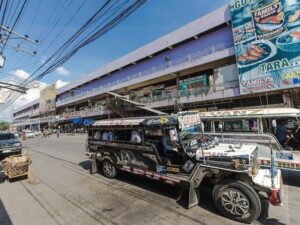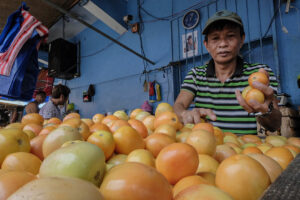THE NATIONAL Wages and Productivity Commission (NWPC) approved wage increases of P23 for non-agricultural workers and P35 for agricultural workers in Region X (Northern Mindanao), starting on Jan. 12.
Wage Order No. RX-23 divides the pay hike for agricultural workers in two tranches, with the first P23 coming on Jan. 12 and an additional P12 on July 1, 2025.
Agricultural workers will receive a P23 wage hike in the first tranche in January, followed by another P12 hike on July 1, 2025, according to a statement issued by the Department of Labor and Employment (DoLE) on Thursday.
Upon full implementation, these increases will raise minimum wage rates in the region to between P446 and P461, effectively removing the rate distinction between non-agricultural and agricultural workers, DoLE added.
The Northern Mindanao Regional Tripartite Wages and Productivity Board (RTWPB) is seeking to simplify and standardize its wage classification structure, it noted.
The board likewise approved a P1,000 monthly hike for domestic workers, bringing their entry-level wage to P6,000 from P5,000 through Wage Order RX-DW-04.
Federation of Free Workers (FFW) President Jose Sonny G. Matula said the new wages for workers in Region X are akin to “tossing crumbs.”
“It’s just not enough, especially compared to the needs of workers to survive as manifested by the trade unions. Worse, it widens the gap from P182 to P184 between Region X and the National Capital Region (NCR), further underlining the persistent and unjust regional wage disparities across the nation,” he told BusinessWorld via Viber.
“In Metro Manila, where the minimum wage is P645 compared to P461 in Cagayan de Oro and nearby areas, the P184 gap is indefensible. A worker’s value—whether they’re a factory worker, a waiter, or a mason — should not be downgraded simply because of their location,” he added.
Meanwhile, the NCR board through Wage Order No. NCR-DW-05 also granted a P500 monthly increase for domestic workers. This brings their monthly minimum wage to P7,000 from P6,500.
The wage order for domestic workers in the NCR will take effect on Jan. 4.
DoLE said 4,907,584 minimum-wage earners will benefit from wage orders issued in 14 regions, along with 717,508 domestic workers in nine regions.
It added 7,528,968 full-time wage and salaried workers earning over the minimum pay may indirectly benefit as employers adjust for wage distortion.
Fourteen boards (NCR, CAR, Regions I, II, III, IV-A, Mimaropa, and Regions VI, VII, VIII, IX, X, XII and XIII) have issued wage orders for private sector workers this year, with daily wage increases ranging from P21 to P75.
Nine wage orders were issued for domestic workers (NCR, CAR, Regions I, II, MIMAROPA, and Regions VI, VIII, X and XIII, ranging from P500 to P1,100.
Meanwhile, Region V (Bicol) deferred the minimum pay determination process due to the impact of Tropical Cyclone Kristine.
DoLE said Region V will resume the process when circumstances permit or after three months from Nov. 7, 2024.
The Region XI board (Davao) is currently in consultations and will announce its minimum wage decision in January.
“The RTWPBs have been instructed to roll out productivity improvement programs and gainsharing schemes designed to foster sustainable and long-term wage growth. These programs particularly target areas within the regions with lower productivity levels, where their implementation can significantly enhance overall efficiency,” DoLE noted.
It cited the availability of exemption options for firms affected by recent typhoons.
Affected enterprises may inquire and apply through their respective wage boards to determine their eligibility for a full exemption or a specific minimum wage tranche.
Additionally, DoLE urged businesses and workers to take advantage of programs like the Adjustment Measures Program (AMP), which aims to mitigate vulnerability to economic disruption, including those caused by natural calamities. — Chloe Mari A. Hufana






